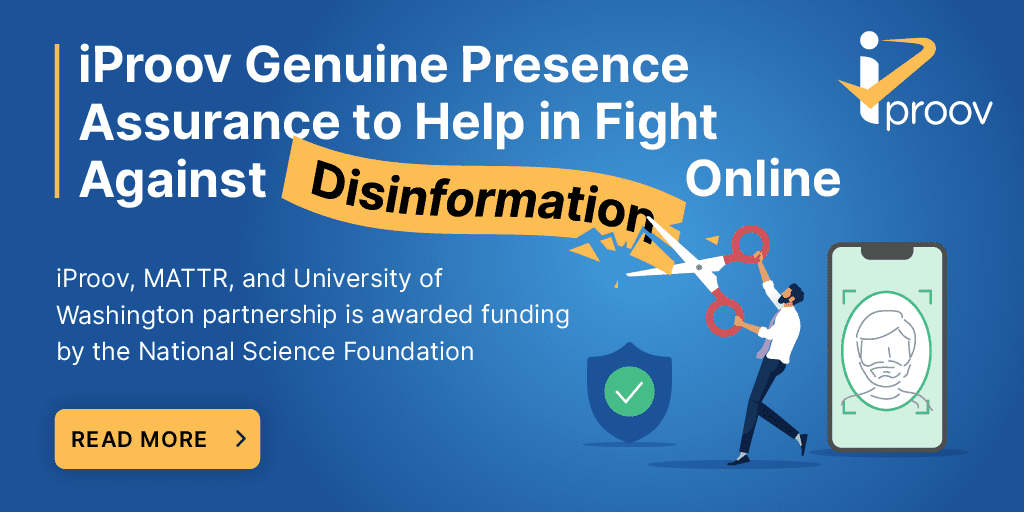October 25, 2021
How can people be protected against the dissemination of false and manipulated content online? The National Science Foundation (NSF) wants to find out and iProov, the world leader in facial biometric authentication technology, and its partners have been awarded funds to explore it.
iProov and MATTR, a provider of verifiable data and digital trust solutions, will collaborate with the University of Washington (UW) as a team in the 2021 Cohort focusing on the Trust & Authenticity in Communications Systems track by the NSF’s Convergence Accelerator. Together, they will produce a flexible proof-of-concept technology to help people verify the source of information and its reliability.
“We have witnessed the rapid and viral manner in which falsehoods spread across social platforms and networks and the damage they can cause in society,” said Andrew Bud, iProov CEO. “We are delighted to be one of the teams chosen by the NSF to create a robust way to combat disinformation online and further protect the American people. This is a serious problem, and iProov’s Dynamic Liveness can help validate the legitimacy of information and those providing it.”
The project will mark the expansion in the use of iProov’s technology from assuring the genuine presence of people to include the genuineness of things and information. It is an exciting new application of iProov’s unique capabilities in detecting forgeries and doctored imagery. Since 2013, iProov has been pioneering the use of machine-learning to assure the genuine presence of remote individuals for online identity verification. Public sector agencies, banks and other organizations are using iProov to verify that digital users are the right person, a real person, and that they are authenticating right now. By detecting the use of manipulated imagery as well as deepfakes and other synthetic media, iProov is already protecting citizens, enterprises and governments around the world from the effects of identity theft, fraud, money-laundering and other cybercrime.
“We’re in an arms race against the use of deepfakes and other synthetic media,” Bud said. “In the wrong hands, they pose a serious threat. By drawing from our respective areas of expertise, this cohort can deliver an innovative technology advancement that protects people against disinformation.”
Launched in 2019, the NSF’s Convergence Accelerator builds upon research and discovery to accelerate use-inspired convergence research into practical application. The program funds a cohort of teams to work interactively toward solving grand societal challenges that impact thousands of people positively.
With an investment of $21 million, NSF has selected 28 multidisciplinary teams for phase one of the Convergence Accelerator program 2021 cohort. At the end of phase 1, each team participates in a formal pitch and proposal evaluation. Selected teams from phase 1 will proceed to phase 2, with potential funding up to $5 Million for 24 months.
